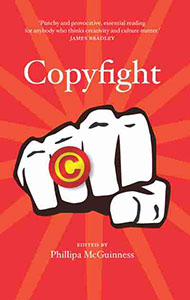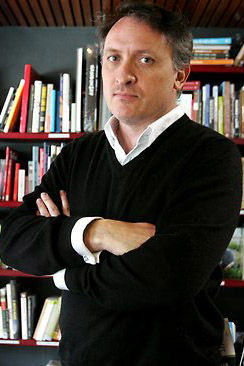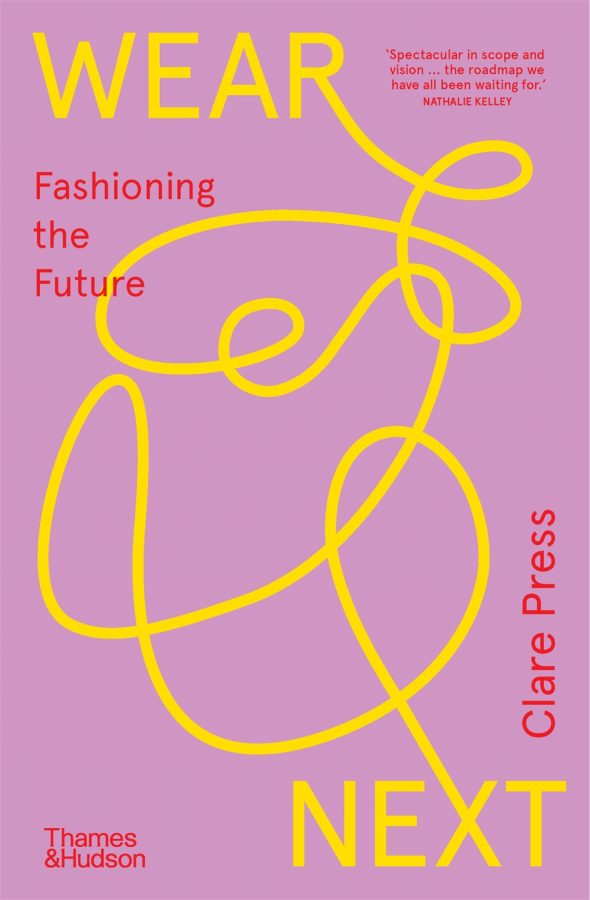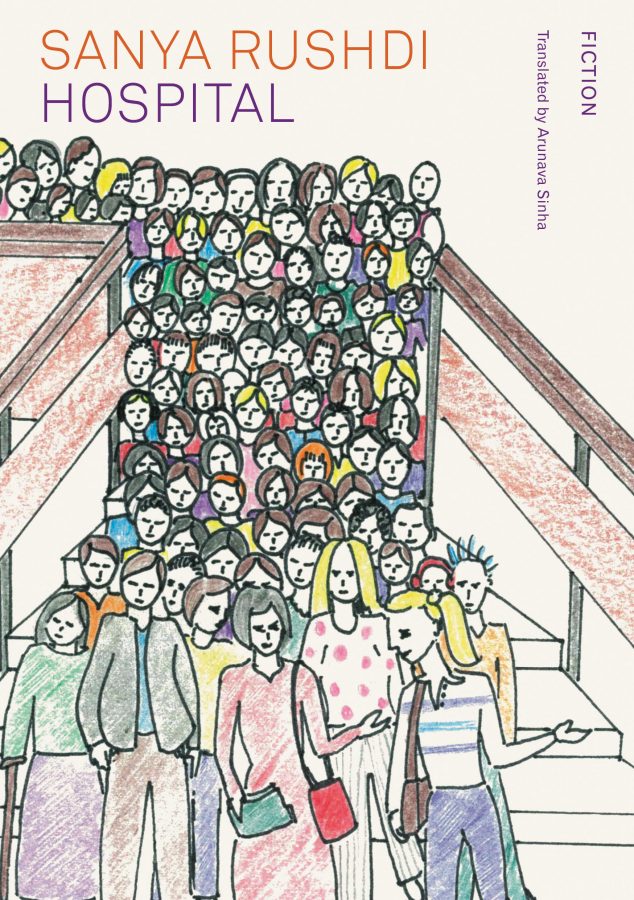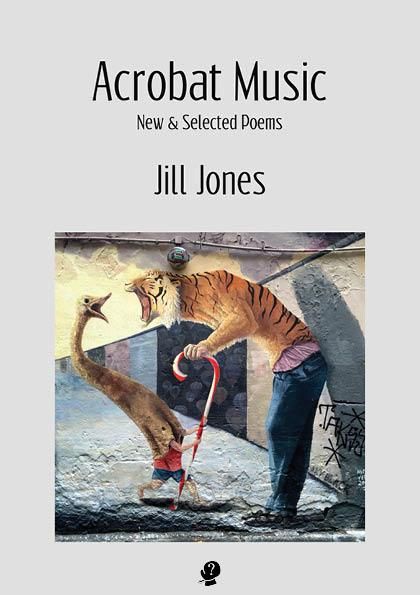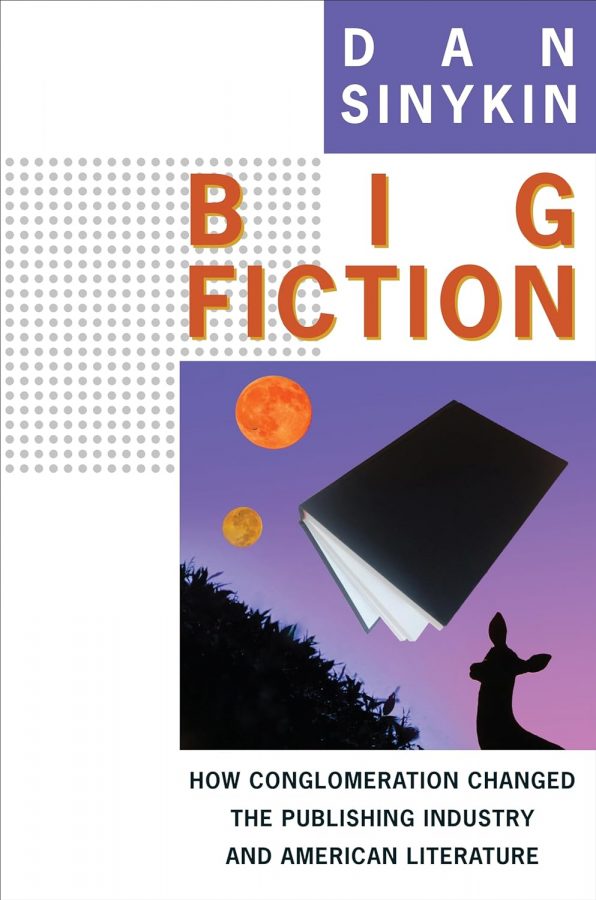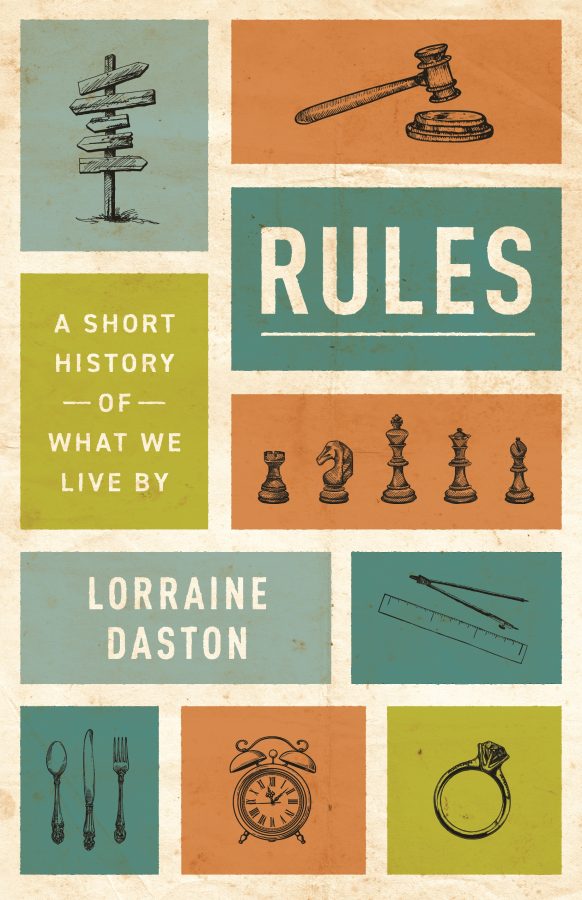Long before Linda Jaivin, Elmo Keep, and John Birmingham lined up with their writer peers in Copyfight to exclaim just how horrible it is to be a ‘creator’ right now, there was Honoré de Balzac:
At no other point in history has the artist been protected so little as now. In no other century have the masses been as intelligent as in ours, at no other time has thought been as powerful as it is now; and yet never before has the artist counted for so little as is the case now.
In 1834 the hardest-working man in French letters — 48-hour benders at the bureau plat were not beyond him — unbuttoned his rage in a missive to his colleagues. French authors were being paid a pittance (le seul denier). They were still subject to the system of state permissions. Writers received nothing from libraries and little from Paris’s twelve bulging theatres.
The theatres, which filched Balzac’s and others’ stories to mount productions paying handsome returns to bum playwright and genius alike, were killing books with their easy pleasures:
In order to appreciate fine literary works […] one needs to have a broad education, a nourished intelligence, silence and calm around oneself, as well as a certain spiritual tenseness; whereas for a dramatic work all one needs to do is lend one’s eyes and ears during the drowsy hours of after-dinner digestion.
Balzac, often crazed on dozens of cups of decocted coffee, cursed them from beyond the footlights:
May shame creep into the depths of your hearts and make you blush!
His anger boiled over into action. ‘Genius’ deserved more than poverty. French writers should do what the French still do so well: organize their labour. His 10,000-word ‘Letter addressed to the French Writers of the 19th Century’ called a meeting. Soon the Société des gens de lettres de France was formed.
*
A century before, across the Channel, Daniel Defoe—in between inventing journalism and the English novel—was angry enough in 1704 to pen, ‘An Essay on the Regulation of the Press’.
What meagre regulation of publishing that had existed throughout the seventeenth century collapsed in 1694. The roots of the broken regulatory regime had been in Bloody Mary’s attempts in the mid-1550s to stop the spread of Protestant literature. This had morphed into a Stationers’ Guild monopoly to pre-approve publications and license the right to print them, but by 1694, all relevant parliamentary acts had expired. In the ten years before Defoe’s letter appeared, London’s public sphere was disfigured by a mix of Crown and party censorship on one hand and rampant ‘press piracy’ on the other.
At the time being a writer was still a dangerous and grubby thing to do. Only a few—such as William Dryden, Alexander Pope, and Jonathan Swift—had engineered political and financial patronage for themselves. Many of the earliest ‘professional’ writers — Ben Jonson, Aphra Behn and Daniel Defoe—faced the rough of the free market and were as much entrepreneur and spy as writers. Being a writer had little of the status that was later accrue to the title.
Instead in these dangerous days the law provided greater threat than protection. It was unclear in the 1690s whether there was to be a free press at all. The Tories, who were yet to conceive for themselves any kind of social libertarian branch, were trying to stamp out religious dissenters rather than foster freemindedness. They fought against a general license to publish, and they sought to reinstate some version of the old pre-publication licensing system.
The thirteen failed bills the High Tories took to the Commons from 1695 were the worst of both worlds: they accommodated religious and political censorship—pushing down on their religious enemies—and, at the same time, through the pursuit of inefficient pre-licenses or pre-publication approvals as a regulatory mechanism, they fostered a black market of press piracy. Writers and publishers could be jailed by the Crown or Partymen for dissent on one hand, and they could be gouged financially by press-pirates on the other.
So Defoe, who had skin in the game as a publisher and a writer, and who had landed in prison in 1703 for a satirical pamphlet on religious dissent, proceeded cautiously. The tone of his letter—as he argues for both political freedom of the press and a general protection against piracy—is modest, educative, and beseeching. It has little of the venom of the pamphlet that saw him jailed. Instead, Defoe offered reasons for why works shouldn’t be subject to political review before publication:
[S]uppose this or that Licensor, a Partyman that is, one put in and upheld by a Party; suppose him of any Party, which you please, and a Man of the opposite Kidney, brings him a Book, he views the character of the Man, O, says he, ‘I know the Author, he is a damn’d Whig, or a rank Jacobite, I’ll license none of his Writings’.
He goes further to argue for the importance of general access to the knowledge. In a precursor to how we have come to speak of the internet, Defoe gave language to the idea that printing was ‘the most useful invention ever found out’:
To put a general stop to publick Printing, would be a check to Learning, a Prohibition of Knowledge, and make Instruction Contraband: And as Printing has been own’d to be the most useful Invention ever found out, in order to polish the Learned World, make men Polite, and encrease the Knowledge of Letters, and thereby all useful Arts and Sciences; so the high Perfection of Human Knowledge must be at a stand, Improvements stop, and the Knowledge of Letters decay in the Kingdom, if a general Interruption should be put to the Press.’
Defoe gave words to the printers and stationers to a wage a campaign for print freedom and copyright protection. Six years later these permissions and protections would arrive in the Statute of Anne.
*
In some ways, Phillippa McGuinness’s commissioning of 23 essays on copyright, and their publication as Copyfight, from her seat as publisher for NewSouth Books, resembles the political compact between writers and publishers to pursue press freedom and copyright protection in the early 1700s. The writers provide most of the words, detailing the suffering brought on by the many trespasses against them. The publishers shove from behind, motivated by the interests they sometimes share with writers — often enough in the early 1700s writers and publishers were one and the same.
In Copyfight authors and publishers share an interest in making pro-copyright arguments — arguments about fairness, sustainability, artistic penury, and the common good — legible to stakeholders and sympathetic bystanders. These four themes were present in Defoe and Balzac’s broadsides but Copyfight updates them to deal with more contemporary threats: downloading, burning, hacking, shaming, price gouging, co-option, corporatization, and appropriation. McGuinness and her collaborators trick out the horrors of each. There is good and bad and ambiguous news to be gleaned. For example, Australians love to download American longform television illegally (which is bad) but we leave Australian productions alone (which is good, I think…).
Copyfight also acknowledges the case that can be made for nearly every one of these practices — or at least the case for the new technologies and new modes of delivery. Chicklit and romance thrive on the net. Author Monique McDonell explains how such works are both written and read very quickly. Low cost, high volume e-books are the perfect mode of transmission.
Those arguing for greater deregulation of the content sphere often do so from a precarious position of denied or open self-interest. The ‘copyleft’ movement seeks greater access for all. But in some sense the copyleft crowd can be categorized as a bunch of academics wishing for easy access to whatever they wish to read. Corporations like Google, Amazon, Apple, Facebook, and Spotify want to facilitate content creation and dissemination — and often invoke the common good or a commonwealth of ideas to do so — but it is impossible for these entities to deny a fundamentally commercial benefit vested in their advocacy. Illegal downloaders wouldn’t mind paying for content if only there were truly convenient ways to access it (but until then let’s watch the latest episode of Game of Thrones).
The takeaway from Copyfight is that while we are drowning in content, we are also doing terrible things to artists, writers, and musicians. We are taking liberties with their work, destroying the viability of their careers, and, indeed, perhaps we are destroying whole cultural industries or cultural forms even when, often as not, there are no good alternatives arising from the scorched earth. We are harming them, the creators, and, eventually, ourselves. We are on the cusp of an ‘Armageddon’. As John Birmingham ponders, ‘will we make a desert of the creative world, and call it free?’ As did Balzac’s and Defoe’s letters centuries earlier, the book rings with exasperation and anger.
*
But truth be told, many writers are angry right now. They are angry about piracy, about writers’ pay, about the winners of literary prizes and about the demise of literary prizes, about fanfic, angry about the gender divide among the reviewed and among the reviewers, even angry that the Canadian Prime Minister just won’t read dem books. It is the mode de jour—and boring because of it.
And writerly anger starts at the top. Jonathan Franzen; he’s angry. He is the angriest of all the writers about the internet and about the young people who use it. Twitter irritates him ‘unspeakably’. And to Franzen, Amazon’s Jeff Bezos, ‘may not be the antichrist, but he surely looks like one of the four horseman’.
In fact, there is so much anger that Buzzfeed Books has swanned in and argued that the best way to win the interwebs is to not be angry at all. There, Books Editor, the charming Isaac Fitzgerald, propagates the ‘Bambi Rule’— ‘If you can’t say something nice, don’t say nothing at all!’:
Why waste breath talking smack about something? […] You see it in so many old media-type places, the scathing takedown rip.
Fitzgerald’s internet is one where literary people
understand that books are, something that people have worked incredibly hard on, and they respect that. The overwhelming online books community is a positive place.
It is a position that made many more people angry.
But this wash of authorial anger, complicates the way we respond to Copyfight and reveals something of our underlying disposition. For what is most strange about the anger in Copyfight and elsewhere, is the community indifference to it — that is, our indifference to the damage to the working lives of writers. Mostly we are unmoved.
This indifference suggests something about our conditioned relations to writers and to their anger. We are used it, barely impressed. Instead, it is likely that, from time to time, I will continue to casually pirate and photocopy and exploit the work of writers — despite having many publisher and writer friends — partly because I share an internalized, but often unexamined, view of the role of the writer: a view of what they are owed and what they owe me. And some part of me believes, somewhat unfairly I think, that they shouldn’t complain too much.
Authorial identities, roles and obligations are, as Freud would say, overdetermined. How we see writers and writing — how we see authors and authorship, how we interact with them — is shaped by layered, compressed, sometimes contradictory notions and histories. The writer is a particularly rich and many-faced figure. He or she appears to us as a divinity, as a legislator, a wastrel, a genius, a servant, a seer, a creep, an honest toiler, a lone hero. All these ideas have their own history—some in reality, some in myth. And each can be pricked into the mind when we discuss contemporary authorship.
In the past decade the study of authorship has been partly exercised by the question of how these figures of the author – how our notions about them – came into the public discourse. One important question is how and when the figure of the author turned up at all, and why he did so in the dashing garb of the Romantic poet with something splendid in his hair.
Here, strangely, notions of Romantic authorship and copyright are entwined. The conventional argument is that we get the contemporary author because we got copyright in 1710. The Statute of Anne creates, or at least acknowledges, the author’s economic rights and enables a few to prosper. For those scholars of a Marxist inflection this is just another step, albeit an important one, in the emergence of the author in, to borrow Christine Hayes’ phrasing, the ‘context of technological, social, and economic developments, such as the invention of the printing press, the creation of the reading public, and the rise of a commercial market’. The author becomes an economic subject.
What is intriguing is that legislative and technological change not only facilitates a transformation in the productive modalities of the writer but also transforms their status. Somehow the conditions of authorial production — which Defoe foregrounds — fell into a silent background, and the notions of ‘originality’, ‘sincerity’, ‘morality’, and ‘genius’ drew a gleaming light to themselves.
But the transformation from the jailhouse to the divine was by no means fast or complete. Even by the mid-nineteenth century, Thomas Carlyle’s ‘The Hero as the Man of Letters’ is contradictory figure:
He is new, I say: he has hardly lasted above a century in the World yet. Never, till about a hundred years ago, was there seen any figure of a Great Soul living a part in the anomalous manner; endeavouring to speak-forth the inspiration that was in him by Print Books, and find place and subsistence in what the world would please to give him for doing that. Much has been sold and bought, and left to make its own bargain in the market place; but the inspired wisdom of a Heroic Soul never till then, in that naked manner. He, with his copy-rights and copy-wrongs, in his squalid garret, in his rusty coat; ruling (for this is what he does), from his grave, after his death, whole nations and generations who would, or would not, give him bread while living,—is a rather curious spectacle! Few shapes of Heroism can be more unexpected.
Samuel Johnson, with his insistence on payment for every word he ground out, is often taken as the first fully professional writer, but 50 years on from Johnson the writer is still at best a semi-professional figure — the term ‘portfolio career’ would have been meaningless then but is apt. Carlyle’s writer-hero legislates from beyond the grave, but barely has bread to feed himself, stitching a living together from bits and pieces. As for the wages of immortality — there are no wages.
Romanticism then has a quixotic relationship to money and industrialization. Romanticism did not bring authorial penury—instead (and David Saunders and Ian Hunter are helpful here) Romanticist ideology is the response or the product of the social and technological transformation of writing into a semi-profession. Books could suddenly be sold to a large market rather than a small one. It is the emergence and protection of a market for books and periodicals after the Statute of Anne that then sees the financial ascension of a handful of writers out of poverty and out of dependence on church or court patronage—into semi-professional semi-autonomy. But it is the literary preferences of this market for certain forms of new writing — say the early novel — with its emphasis on ‘practices of the self’ that require authors to publicly figure themselves as exemplary ethical subjects. This propels some writers into a kind of radical, public self-reflexive selfhood that modernity had promised since Montaigne but had barely delivered.
This new exemplary ethical selfhood (and the celebration of it) and the pleasure of creative work (the alchemical moment when craft and capability must step into the dark to spark something new) would seem to be the unusual rewards of the work of the author. The first element — public ethical selfhood — provides a pleasurable and monetizable new public authority for the writer and a highly valorized way to proceed through the world (again, see Jonathan Franzen). The latter element — the word by word, sentence by sentence, acts of creation which extend beyond craft and internalized capability into the divine — provide the release of and access to the deeper self. These two elements would seem to be the rewards (and vanities) of a being a writer or creator that need no greater reward than themselves. When writers, from Franzen down, whinge that these aspects of their personhood and work are not acknowledged or further rewarded, it is easy to smirk.
Yet at the same time as emerging as a new type of public person — and sometimes enjoying the pleasure of finding or using their deeper self in their work — the writer’s person is still all the other things they have always been: somewhat grubby; a hack; a process worker; a craftsperson — someone who has internalised technique, capabilities, procedure, and aesthetic registers, and is deploying them in the pursuit of something new.
It is this worker — chained to their bureau — that Balzac describes as being ‘raped’ when they are not properly acknowledged and rewarded for their labours including (for Balzac) the labour of becoming a certain kind of exemplary self:
No sooner has one of you, after having studied for fifteen years, after having groaned, turned pale, suffered, and endured for fifteen years, after a great deal of troubles and money spent, after having frequently shed tears, after having learnt about the world and mankind, learnt how things are, travelled through all kinds of misfortune; no sooner has a man who has sweated over his sentences paid for his corrections as Buffon did; no sooner has a writer published a book, created various characters, come up with motives for their actions, sketched out a plot, than this plot, these motives, these characters, the whole book, as it were, are all taken and turned into a theatre play.
A man of honour, who would be incapable of taking from you the tongs with which you stoke your fire, takes away from you without any scruples your dearest possession, whereby his conscience will scarcely be more troubled than if he had taken your wife. But the point is that a lover takes a consenting wife, whereas the Cicisbeo of the theatre rapes your idea.
Copyfight wrestles with this paradox: the divine alchemy in writing — which is its own reward— and the ordinary hands of labouring writer, which require and are owed bread but are smacked away by too many of us as we burn, use, and steal what was theirs.
References
Honoré de Balzac, ‘Letter addressed to the French Writers of the 19th Century’ (1834).
Thomas Carlyle, ‘The Hero as the Man of Letters’ (1840).
Daniel Defoe, ‘Essay on the Regulation of the Press’ (1704).
Christine Haynes, ‘Reassessing “Genius” in studies of authorship: the state of the discipline.’ Book History 8: 2005.
David Saunders and Ian Hunter, ‘Lesson from the “Literatory”: How to Historicise Authorship.’ Critical Inquiry 17 (Spring) 1991.
